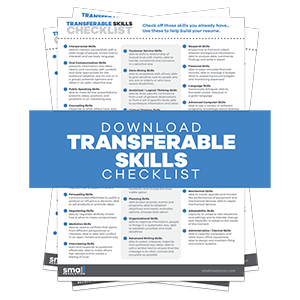It’s expected that more than one-third of all employees will be working remotely by the end of the next decade, according to the FlexJobs survey. This is clearly a trend on the rise.
But with one-third of people working outside the typical workplace environment, there are still two-thirds of employees who do and many of them simply don’t understand what online work actually is. That’s why new online employees often need some training until they thoroughly grasp the concept.
One of the first things that people usually don’t understand is that not all of online employees are in the same position. They treat their online careers differently.
You can be an employee of an online company and work remotely. Sometimes, this involves occasional face-to-face meetings. If you live in a different country or a continent, these meetings are also conducted online.
Another way is to be a freelancer. You build your online career by freelancing with different companies and offering your assistance on various projects. This often means you would be in full control of the projects you work on and the type of work you want to do.
But with full control comes a lot of responsibility. You’re the one responsible for generating a continuous workflow and income stream. That’s the price you pay for being your own boss.
This is just one of the things people don’t get when it comes to online careers. There are other misconceptions, as well. Some of them exaggerate the downsides of online work, while others focus on the upsides a bit too much.
Let’s start with overly optimistic ideas about online careers:
1: I’ll Work Whenever I Want and as Much as I Want
In theory, this is true. You can work whenever you want and as much as you want, but that means that your next paycheck reflects just that – there’s no consistency unless you are consistent.
While you usually don’t have to be online 9 to 5 during the workday, it still means you should work for at least 36 hours a week if you want a decent income.
If you work 8 hours a day, there is some wiggle room for you to rearrange your work hours, but without annual leave, it’s harder to skip a day or two a week without feeling it unless you squirrel some income away for the odd holiday or day with the kids.
2: I Can Always Free Up My Day
It’s definitely easier for an online employee to clear up their day unless they are required to work specific 9 to 5 shifts. Still, this doesn’t mean that they can clear up their afternoon at any moment and on any day.
How to schedule your day when you freelance or work from home https://t.co/BcQ77PGD48 pic.twitter.com/zZOMSmHYKs
— Lifehacker (@lifehacker) March 14, 2019
Online work is still hard and important work and people have deadlines, schedules, milestones, meetings and all the other time-consuming features of a traditional job position.
If planned ahead, an online employee may have better chances to get a day off from their work, but that is the same with traditional workplaces, as well.
3: It’s Like Being on a Constant Vacation

This is one of the most toxic myths about online work that lures many people who aren’t prepared for the reality of online work. The most important thing that changes once you replace the traditional workplace with your home office is the setting.
The setting also means that there’s often no boss or coworkers in your surroundings. While it can mean a bit more freedom, it also means you have only yourself to rely on for discipline.
Work ethic is the core of every successful online career. In combination with self-discipline, it’s what makes working from home possible. That’s far from having a constant vacation. Online work is still just that – work.
4: I Can Work in My Pajamas
Honestly, it’s quite possible that some freelancers spent a couple of days working in their pajamas at first. But soon enough, this gets old. It’s difficult to get into a productive business mindset if you’re in your pyjamas. You’re not gaming.
Not only do you start dressing up for work in your home – but you also feel the need for a functional home office. In that way, you will make a clear boundary in your mind between leisure time and working time. This is important as it makes you more productive and far more organised.
5: It’s 100% Stress-Free
Just because you’re not in the office, it doesn’t mean that you’re free from work stress. Deadlines, miscommunication, office politics, and similar stress-inducing factors are not gone just because you’re at home.
Workplace #stress is now a major cause of mental health problems. We have funded access to some online resources to help you identify key triggers for stress and examine how to support psychological wellbeing in the workplace #StressAwarenessMonth https://t.co/uFRb6MBNv8 pic.twitter.com/j40SIImzn0
— The Physiological Society (@ThePhySoc) April 29, 2019
Another thing that can be a serious source of stress is finding new clients. If you’re not employed by a company and freelance under your own name, there ‘s a constant pressure to keep the pipeline full of good clients.
You always worry, at least a bit, about where the next client will come from and whether you’ll have enough work.
Of course, the myths go both ways. Just because some people exaggerate the good side of online work, it doesn’t mean that it isn’t there. Here are some furphies about online work that don’t do it justice:
6: I Won’t Be Productive Enough
You can be productive, you just need to put your mind to it. Working from home can be quite distracting, especially if you have children.
The key to productivity is good organisation and time management. You need to practice self-discipline and learn how to deal with distractions.
Here is a video that shows how you can boost your productivity if you are a woman working from home. It showcases the daily routine of an experienced online freelancer.
7: I Will End Up Working 24/7
This sometimes happens, but only if the online worker allows it to happen. If you’re not in control of your own time and you get distracted easily, you will spend your entire day working on a task that can be completed in just two hours.
In other words, you won’t work from dawn till late in the evening if you know how to be more productive. This type of time management is something that a lot of freelancers struggle with. However, it takes practice and patience as time management is a skill that can be mastered.
8: It’s Not a Real Job
This is, perhaps, one of the most common misconceptions that people have about freelancing. The concept of working online is still relatively new despite the World Wide Web being around for more than two decades (and the Internet even longer).
It’s different from the traditional idea of having a job, so it gets confusing for many people.
Working online usually gets mistaken for scams, pyramid schemes and similar activities. If you get a job in a legitimate online company, there is nothing fake about your job. It may take some time for everyone to accept online careers as real careers, but we’re getting there.
9: There Are No Boundaries

Your kids are at home, your friends and relatives are dropping by unexpectedly and everybody thinks you’re available whenever they need you. This will be true if you allow it to be.
If you don’t value your time, then no one else will.
You have to have a serious talk with your friends and family about your job. Let them know that you cannot be disturbed at their convenience and that you have working hours, just like everybody else. You may experience some sulking, but at least you’ll have your healthy boundaries in place.
10: There Are No Workplace Friendships

You’ve heard about online dating, right? So, if people can form meaningful relationships online, what stops us from creating online workplace friendships.
You shouldn’t use your working hours socialising, of course, but you can always maintain friendships with your coworkers across the world via Facebook and other social media, as well as the appropriate online workplace forums your employers provide – like Basecamp’s Campfire, for example.
Workplace friendships are common in the online world, even if you’re a freelancer. Furthermore, since your coworkers might be on the other side of the world, these friendships can bring new perspectives and inspire you to travel to places you may never have thought of before.
There are good sides and bad sides to having an online career. Either way, it’s a trend that’s here to stay. It revolutionises the way organisations of all sizes and industry sectors are planning and coordinating their projects.
And you can find your place in this world of the online job market, too – it’s a massive market not limited to geography and timezones like many other workplace markets. Your first step, though, should be getting some training that will make you a desirable employee.
Start with Small Revolution’s comprehensive and affordable online courses. All of them are designed from the ground up by experienced eCommerce instructors to give you the training you need to land your first online job.
So what are you waiting for? A new online career awaits!


